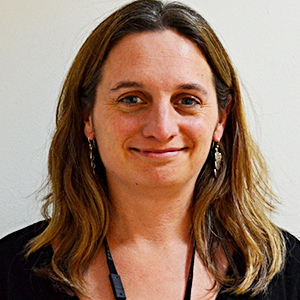Last week saw the first of 5 regional events about taking forward the recommendations of the Francis Inquiry. These events bring together updates from several national organisations on implementing Francis and examples of local action and innovation. I’m delighted that several of these are proving a sell-out. There are a few spaces left at Bristol on 24 July or Newcastle on 31 July – you can still sign up (if you’re quick).
I’ll write more fully about the insights from these events in a subsequent blog. Today I want to focus on one inspiring and infectious aspect of the day – the individual and collective pledges made for and following the first NHS Change Day in March this year.
NHS Change Day was the brainchild of a group of emerging clinical and managerial NHS leaders. They sought to harness the creativity, innovation and energy of people who work for and with the NHS and patients in a single day of collective action, which would galvanise lasting changes across the year. The movement now has over 189,000 pledges. You can read these and add your own on the NHS Change Day website and watch an introductory film.
At last Wednesday’s event, we heard about some of these pledges. The junior doctor who pledged to taste children’s medicines leading to action to reformulate them to taste better for his young patients. The senior nurse leader spending more time on the frontline. And the many thousands of people pledging to do the small things that matter, like smiling and saying thank you. For me, this was the embodiment of Robert Francis’s instruction to the service to, and I am paraphrasing slightly, “get on with it”. That while the Department has a key role to play in coordinating and implementing the response, it is the role of “every single person serving patients in contributing to a safer, committed, compassionate and caring service.” It was highlighted on Wednesday that some staff don’t feel they have the permission to make changes – Francis and NHS Change Day both in their very different ways give not only permission but a rallying cry for action.
The Department’s senior leaders are pledging to spend four weeks at the frontline this year. My first placement is next month in a mental health and learning disability trust. The induction day gave a powerful sense of the strong values of an organisation that is focused on its patients and service users and empowering to its staff, as well as a thought-provoking taste of some of the challenges staff face on a daily basis. Many of my team have already made pledges, including signing up as Dementia Friends and mealtime volunteering at Guys and St Thomas’ NHS Foundation Trust. We’re starting a pledge wall in the office and inviting colleagues to contribute their own commitments to making a difference. Small steps to be sure and I’m by no means suggesting herein lies the answer to the Francis challenge. But I am returning to Francis’ ‘each and every person serving patients’ theme and suggesting that small actions add up to bigger changes.
A group of real unsung heroes who make a huge difference to the quality of people’s experiences of health and care are healthcare assistants and support workers. Last week saw publication of Camilla Cavendish’s independent review which “has tried to give voice to frontline workers who have been largely invisible to the public and policymakers”. The review spoke to many frontline workers about the many varied roles they undertake, their motivations and aspirations, and also their frustrations at issues, processes and attitudes that sometimes get in the way of care.
The review made 18 recommendations, including for a new “Certificate of Fundamental Care” that must be completed before healthcare assistants and support workers can work unsupervised. It sets out a series of recommendations on making caring a career, getting the best out of people through effective leadership, supervision and support, and making time to care.
There are case studies throughout the report of organisations that value and support this vital workforce, recruiting them for their commitment to caring, investing in rigorous training and development, and acting on their ideas for improving patient care. In our discussions with frontline teams about taking forward Francis, the need for permission and support to staff at every level to act to make a difference for patients has been a common theme. At one hospital, we heard about a Band 2 forum writing its own code of conduct; from another, we learned about how a newly recruited team of values-driven, aspirational and often inspirational healthcare assistants were challenging established mediocre practice on some wards and acting as a conscience of the organisation in living the values it espoused.
As is so often true in the NHS, the best are brilliant and inspirational, yet spreading innovation and excellence is a real challenge. The Cavendish recommendations are being considered at the moment and will be responded to in full this autumn as part of the further response to Francis. It’s a tremendous privilege, but also a daunting endeavour, to be coordinating a cross-system response to an Inquiry of this scale and complexity, and to the independent reviews commissioned in the wake of its findings. There is a huge amount of work still to be done, both at a national and local level. I’d be really interested to hear from you – and particularly from healthcare assistants and support workers – about the changes and pledges you are making to transform care.

Leave a comment